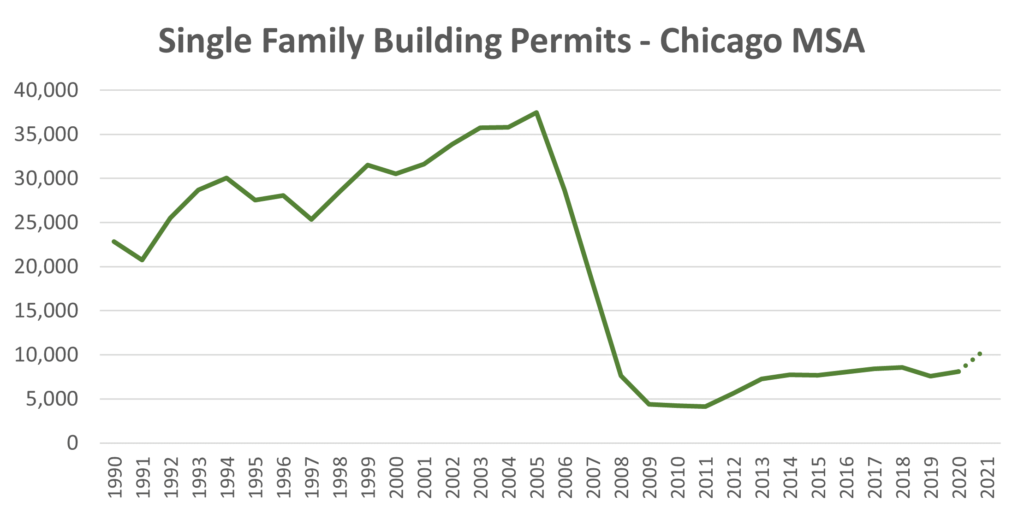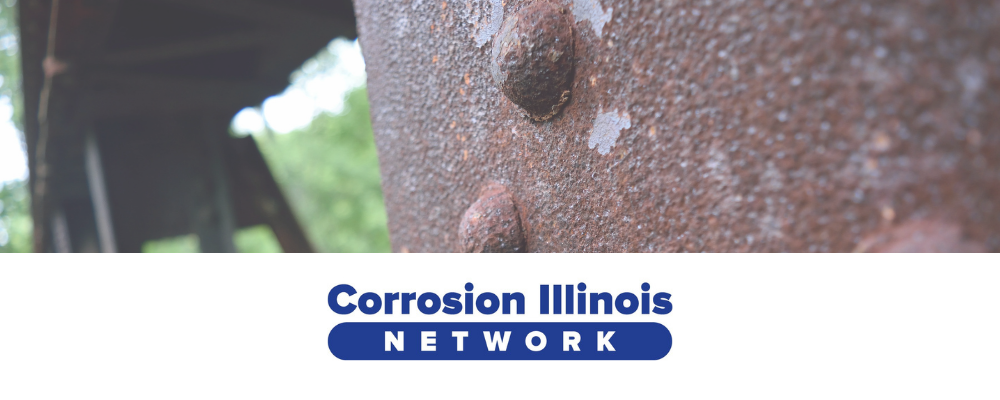TCDF HELPS COMMUNITIES PLUG THE HOLE IN WATER RESOURCE PLANNING
August 24, 2021

Each year, the State of Illinois makes hundreds of millions of dollars available in the form of low-interest loans to public water system operators across the state to fund system improvement projects. In fiscal year 2021, for instance, $350 million was made available through the state’s Public Water Supply Loan Program.
This funding is available for community water suppliers who have the capacity to develop a “Project Plan” within Illinois’ Administrative Loan Rules. However, many small or under-resourced community water systems lack the necessary resources to develop these plans, which can be both time-consuming and expensive to produce.
As a result, these systems’ assets often suffer from severely deferred maintenance and repairs, which can lead to system failures that cause service interruptions and pose risks to public health and safety. Moreover, such failures result in increased costs to communities and may curtail healthy community growth.
Now, a new program created by the TCDF as part of its Corrosion Illinois Network seeks to “plug the hole” in water resource planning. The Community Water Supply Asset Protection Program (CWSAPP) will address the initial resources gap that constitutes a barrier for many water systems seeking to put into place sound asset protection plans and seek funding for maintenance, repair, or replacement of individual assets and/or systems.
To do this, the program will provide technical assistance and funds to the water system owner for the creation of a ten-year Asset Protection Plan. This plan will include the inspection of all water supply and wastewater treatment assets by a licensed engineering firm and the development of plans for maintenance, repair, or replacement as necessary. In addition to prioritizing maintenance and repair projects by fiscal year, plans will include project cost projections and a preventive maintenance inspection schedule for each asset. This schedule will provide for regular asset inspection and maintenance to prolong the asset coating system life, thereby controlling corrosion and extending the life of the asset.
With this planning in place, a community is positioned to seek funding for individual projects from state and federal sources. Further assistance will help system operators identify and engage with potential sources of funding for projects defined within the Asset Protection Plan.
All CWSAPP services will be provided at no cost to client water systems. However, to take advantage of the services, the system owner must agree to use only Corrosion Illinois Network Certified Contractors for all protective coating work covered within the plan.
Contractors will be certified based on their ability and willingness to adhere to industry standards and best practices. In addition, they will be required to follow all applicable state and local laws and regulations, including new rules recently adopted by the Illinois Environmental Protection Agency regarding corrosion work on community water supplies. Finally, to be certified contractors must be affiliated with a federally licensed apprenticeship school that offers industrial coatings training and certification. In this way, the TCDF aims to extend the value of the program by creating workforce development opportunities across the state.
“Clean water is no accident,” says TCDF Director of Planning & Programming, Zach Lowe. “It is something that requires careful planning and regular maintenance by qualified industrial coatings contractors. We are excited that this new program will help secure a clean water future for communities across Illinois.”
Communities, contractors, and other clean water stakeholders can learn more by joining the Corrosion Illinois Network for free here.
Market insights you can use, delivered in a single bite.

New Home Sector
Like the existing home market, the Chicago region’s new home market is hotter than it has been in years. A good measure of market activity in this sector is the number of single family building permits issued. From January through June of 2021, homebuilders across the region were issued 4,954 permits for single family homes (a form that includes detached homes as well as “single address” attached units such as townhomes). This is a 52 percent increase over the same period in 2020 and a 39 percent increase over the same period in pre-pandemic 2019. The region is now on pace to issue nearly 10,800 permits for 2021. If this happens, it will be the largest number of permits issued since 2007 – before the housing market implosion.
What’s driving this?
The surge in demand for new homes is being driven primarily by record low inventories of existing homes regionwide. But several additional factors come into play, including the following:
- Demographic shifts – specifically, the aging of the Millennials and Baby Boomers, which give rise to changing housing needs for many individuals and families.
- Rising home values, which have allowed many homeowners who were previously “under water” to sell and make a move to a new home.
- Historically low mortgage interest rates.
- Pandemic de-tethering of home location from work location, giving many more freedom to move around the region.
Will the trend continue?
As long as current underlying market conditions prevail, this trend will likely continue. However, as home prices continue to rise, some softening can be expected. On the other hand, rising home prices may also mean that more under water homeowners are able to finally sell their existing homes and purchase something new. Moreover, homebuilding activity in the Chicago region as a whole has remained at a historically slow pace since the 2008 market meltdown. The sector here has not recovered at the rate it has in many hotter markets around the country, and it is likely that we are now in a period of catching up that could take some time to fully play out before the next downcycle hits.
TCDF LAUNCHES ‘CORROSION ILLINOIS NETWORK’
August 19, 2021

A new resource for community infrastructure stakeholders
The TCDF is proud to announce the creation of the Corrosion Illinois Network and the launch of the Corrosion Illinois website.
The Network is part of the ongoing work of the TCDF to promote the protection and expansion of community infrastructure assets to drive economic development and safeguard public health.
Representing a primary resource for infrastructure stakeholders in Illinois, the Network will focus on educational programs, technical assistance, and training opportunities in corrosion prevention and mitigation. Corrosion is a major cause of structural failures that shorten infrastructure asset life, incur unnecessary costs, limit systems’ capacity to accommodate community growth, and threaten public health and safety.
The Network will partner with corrosion authorities such as the Association for Materials Protection and Performance (AMPP – formerly NACE and SSPC) and regional experts to offer online and in-person educational programs for engineers, architects, specification writers, facility owners and operators, and municipal officials in combating corrosion and maintaining strong, sustainable infrastructure.
Continuing education credits required by many government entities and professional organizations will be offered in conjunction with many programs.
In addition, the Network and its website will function as a clearinghouse for information on corrosion industry advancements, public policy, current issues, and best practices.
“We have a major challenge in front of us as a state and as individual communities to shore up our aging infrastructure,” said Todd Dotson, TCDF Executive Director. “The Corrosion Illinois Network aims to be a partner in meeting that challenge. The educational opportunities and other information we will make available through the Network will be applicable to all jurisdictions and systems across the state. A key part of the TCDF’s mission is helping to build strong communities, and the Corrosion Illinois Network takes a giant step forward toward fulfilling that mission.”
The Network presented its first program this spring – an overview of the Illinois Environmental Protection Agency’s new regulations that aim to strengthen community water supplies by establishing new standards for corrosion prevention and mitigation work. The program recording is available here.
To join the Corrosion Illinois Network for free, simply click here. More information on upcoming webinars and other program offerings will be announced soon to all members.